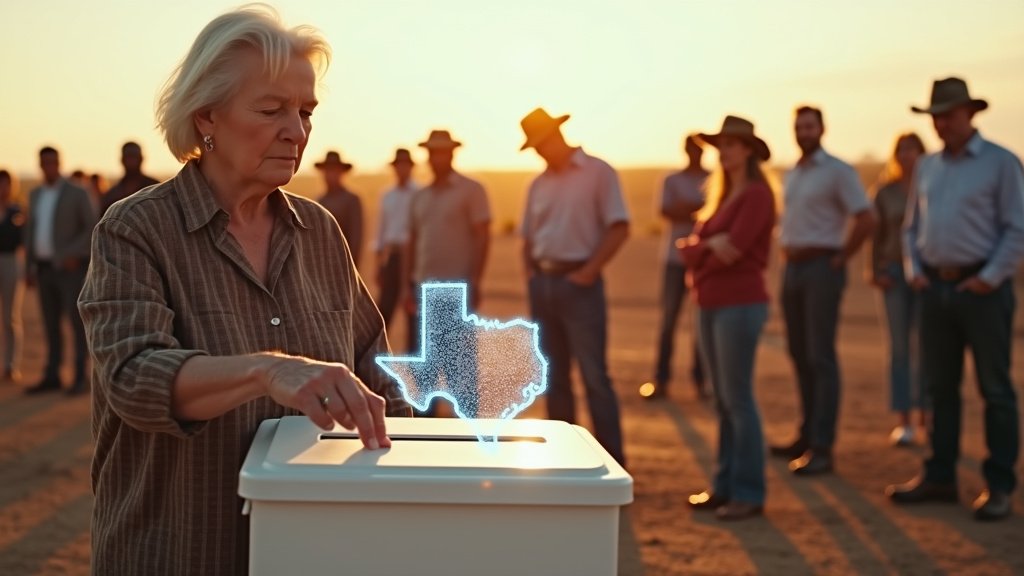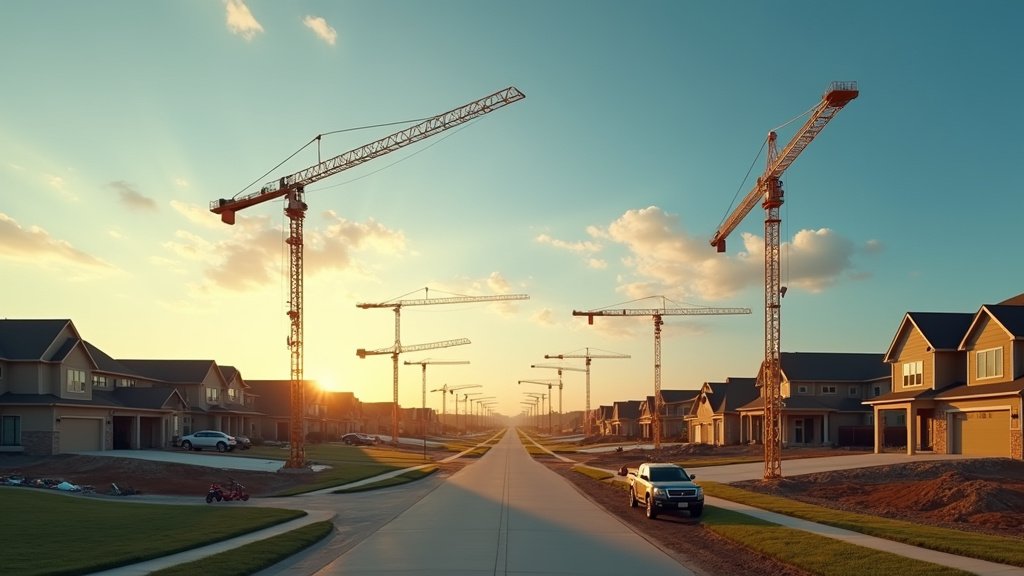Early voting commenced today, October 20, 2025, across the Lone Star State, presenting Texans with a substantial slate of decisions that could reshape property tax landscapes and alter the state’s foundational laws. Voters will cast ballots on 17 statewide constitutional amendments and numerous local elections through October 31, with Election Day set for November 4. This election cycle features significant proposed changes to property tax relief, alongside amendments addressing critical issues from water infrastructure to judicial accountability, making it a key event for Texas residents.
The Ballot Box: 17 Amendments Shape Texas’ Future
This November, Texans have the opportunity to vote on 17 constitutional amendments, each requiring a simple majority approval to become part of the state’s governing document. These proposals, passed by the Legislature earlier this year, cover a broad spectrum of topics. They range from economic measures like banning capital gains taxes and providing tax exemptions for businesses, to social issues such as parental rights and election integrity. Each amendment represents a direct pathway for citizens to influence the state’s long-term direction, requiring careful consideration before casting a vote.
Property Tax Relief Takes Center Stage
A primary focus for many voters this election cycle is property tax reform, with several propositions aiming to ease the financial burden on homeowners. Proposition 13, a key measure, proposes to increase the homestead exemption for school district property taxes from $100,000 to $140,000. This change, if approved, would apply retroactively to the 2025 tax year and could significantly lower property tax bills for millions of Texans.
Further property tax relief is offered through Proposition 11, which seeks to raise the additional homestead exemption for seniors and individuals with disabilities from $10,000 to $60,000. For eligible residents, this could mean a combined exemption of up to $200,000, offering substantial savings for those on fixed incomes. Other property tax-related amendments on the ballot include exemptions for surviving spouses of veterans, properties damaged by fire, animal feed inventory, and border security infrastructure projects.
Key Races and Ballot Battles Beyond Taxes
Beyond property tax measures, several other significant constitutional amendments warrant voter attention. Proposition 2 aims to constitutionally ban capital gains taxes, reinforcing Texas’s low-tax structure. Proposition 3 addresses public safety by allowing judges to deny bail for individuals accused of certain violent or heinous crimes. Water security is a priority with Proposition 4, which dedicates funding to critical water infrastructure projects across the state. Additionally, Proposition 16 seeks to constitutionally ensure that only U.S. citizens are eligible to vote in Texas elections.
In Houston, a highly contested race for the 18th Congressional District seat, featuring 16 candidates, is also drawing significant attention, potentially driving higher turnout in that specific district.
Voter Turnout and Registration Hurdles
Historically, voter turnout for constitutional amendment elections in Texas, held in odd-numbered years, has been relatively low, often ranging between 6% and 15% of registered voters. However, recent trends show an increase, with turnout reaching 14.4% in November 2023, the highest in nearly two decades for such an election. While turnout for amendments alone may be modest, ballot measures addressing prominent issues like property tax relief can galvanize voters.
A significant challenge preceding this election has been a backlog in voter registration processing, attributed to a recent overhaul of the state’s voter registration system, TEAM. County election officials have reported technical glitches and delays since the system’s July update, leading to concerns about registered voters potentially needing to cast provisional ballots if their status isn’t resolved. Despite these issues, many counties are working diligently to clear these backlogs before early voting concludes.
Casting Your Vote: Early Voting and Election Day
Texans have from October 20 through October 31 to cast their ballots during the early voting period. For those who prefer to vote on Election Day, polls will be open on November 4. Information on polling locations and specific voting hours can typically be found on county election websites and the Texas Secretary of State’s VoteTexas.gov website.
This election presents a critical opportunity for News regarding how Texas shapes its future through constitutional changes. Voter participation is crucial, as decisions made on these amendments will have lasting impacts on the state and its residents. These measures are Trending topics of discussion, highlighting the importance of making informed choices at the ballot box.






